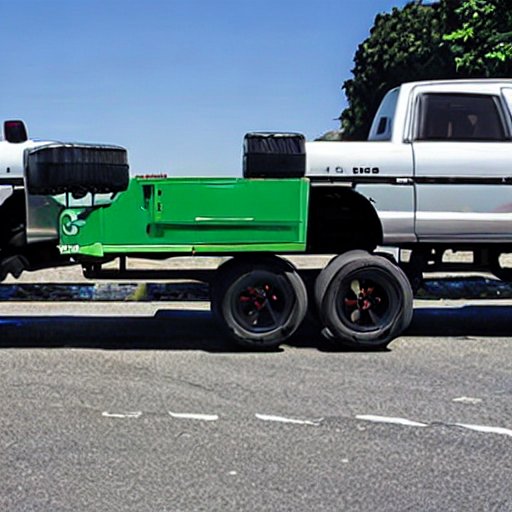Hey there, folks! It’s Matthew, and I’m excited to talk about trailer GVWR today.
I’ve had my fair share of experience with trailers, from hauling furniture to moving dirt bikes and ATVs around.
However, I’ll never forget the time I was towing a heavy trailer and had no idea what GVWR was.
I ended up being pulled over by a cop, and let’s just say things got a little tense.
So, what does GVWR mean on a trailer, and why is it essential to know before hitting the road?
Well, GVWR stands for Gross Vehicle Weight Rating, which is the maximum weight that a trailer can weigh when fully loaded, including its own weight and the weight of the cargo.
This rating is set by the manufacturer and is based on the trailer’s axles, suspension, brakes, and other components.
In simple terms, GVWR is the maximum amount of weight that a trailer can carry without risking damage or causing safety hazards.
Now that we have a basic understanding of what GVWR is let’s dive deeper into what a 9000 GVWR rating means.
Table of Contents
What is a 9000 GVWR rating?
A 9000 GVWR rating means that the trailer can carry a maximum weight of 9000 pounds when fully loaded.
This includes the weight of the trailer itself and any cargo, equipment, or other items you may be hauling.
So, if you have a trailer with a 9000 GVWR rating, you should never exceed this weight limit.
Doing so can put you and other drivers at risk and can also cause significant damage to your trailer and vehicle.
Why is GVWR important?
Knowing the GVWR of your trailer is essential for several reasons.
First and foremost, exceeding the GVWR can be dangerous and can put your safety and the safety of others at risk.
Overloading a trailer can also cause significant damage to the vehicle, trailer, and cargo.
Additionally, exceeding the GVWR can result in hefty fines and legal consequences.
So, always make sure you know the GVWR of your trailer and never exceed it!.
My Personal Experience with GVWR
One time, I was towing a trailer with a GVWR of 8000 pounds, and I had a few ATVs loaded on it.
I thought I was good to go until a cop pulled me over and informed me that my trailer was overweight.
I had no idea what GVWR was at the time, and let’s just say I learned my lesson the hard way.
I ended up having to unload one of the ATVs and pay a hefty fine.
So, make sure you know your trailer’s GVWR before hitting the road!.
FAQs About GVWR
What happens if I exceed the GVWR of my trailer?
Exceeding the GVWR of your trailer can be dangerous and can cause significant damage to the trailer and vehicle.
It can also result in hefty fines and legal consequences.
Can I increase the GVWR of my trailer?
No, the GVWR of your trailer is set by the manufacturer and cannot be increased.
Attempting to modify your trailer to increase its GVWR can be dangerous and can put you and others at risk.
Do I need a special license to tow a trailer with a high GVWR?
In the United States, you may need a special license or endorsement to tow a trailer with a high GVWR.
The specific requirements vary by state, so be sure to check your local laws before hitting the road.
Is there a minimum GVWR for trailers?
There is no minimum GVWR for trailers, as it varies depending on the size, type, and intended use of the trailer.
However, all trailers must have a GVWR rating, and it is essential to know the maximum weight capacity of your trailer to ensure safe and legal hauling.
My Conclusion
Well, folks, that’s a wrap on our discussion of GVWR on trailers.
Remember, knowing your trailer’s GVWR is essential for safe and legal hauling.
Always make sure you never exceed your trailer’s GVWR, and be sure to check your local laws for any specific requirements for towing high GVWR trailers.
Happy hauling, y’all!.
